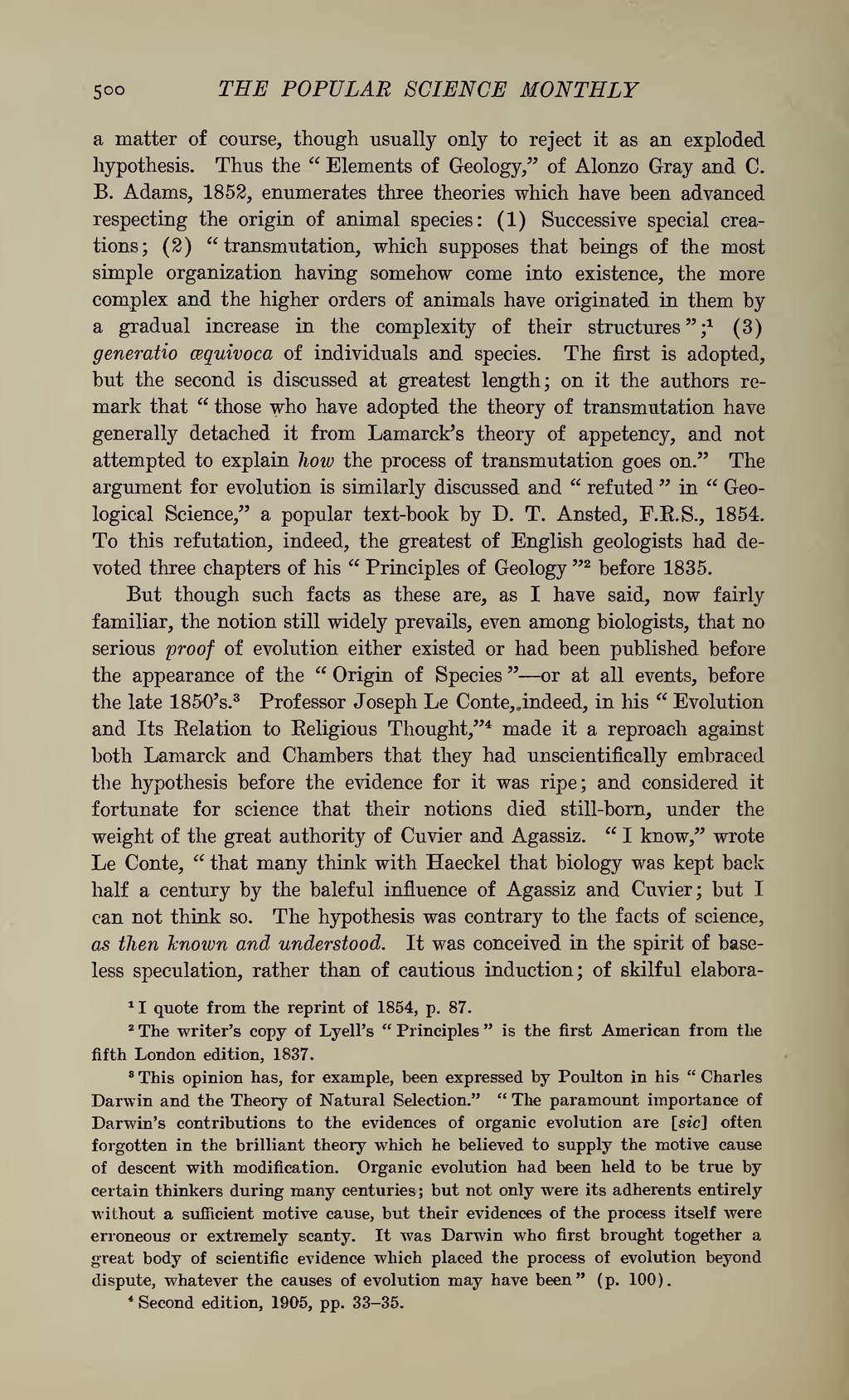a matter of course, though usually only to reject it as an exploded hypothesis. Thus the "Elements of Geology," of Alonzo Gray and C. B. Adams, 1852, enumerates three theories which have been advanced respecting the origin of animal species: (1) Successive special creations; (2) "transmutation, which supposes that beings of the most simple organization having somehow come into existence, the more complex and the higher orders of animals have originated in them by a gradual increase in the complexity of their structures";[1] (3) generatio cequivoca of individuals and species. The first is adopted, but the second is discussed at greatest length; on it the authors remark that "those who have adopted the theory of transmutation have generally detached it from Lamarck's theory of appetency, and not attempted to explain how the process of transmutation goes on." The argument for evolution is similarly discussed and "refuted" in "Geological Science," a popular text-book by D. T. Ansted, P.R.S., 1854. To this refutation, indeed, the greatest of English geologists had devoted three chapters of his "Principles of Geology"[2] before 1835.
But though such facts as these are, as I have said, now fairly familiar, the notion still widely prevails, even among biologists, that no serious proof of evolution either existed or had been published before the appearance of the "Origin of Species"—or at all events, before the late 1850's.[3] Professor Joseph Le Conte, indeed, in his "Evolution and Its Relation to Religious Thought,"[4] made it a reproach against both Lamarck and Chambers that they had unscientifically embraced the hypothesis before the evidence for it was ripe; and considered it fortunate for science that their notions died still-born, under the weight of the great authority of Cuvier and Agassiz. "I know," wrote Le Conte, "hat many think with Haeckel that biology was kept back half a century by the baleful influence of Agassiz and Cuvier; but I can not think so. The hypothesis was contrary to the facts of science. as then known and understood. It was conceived in the spirit of baseless speculation, rather than of cautious induction; of skilful elabora-
- ↑ I quote from the reprint of 1854, p. 87.
- ↑ The writer's copy of Lyell's "Principles" is the first American from the fifth London edition, 1837.
- ↑ This opinion has, for example, been expressed by Poulton in his "Charles Darwin and the Theory of Natural Selection." "The paramount importance of Darwin's contributions to the evidences of organic evolution are [sic] often forgotten in the brilliant theory which he believed to supply the motive cause of descent with modification. Organic evolution had been held to be true by certain thinkers during many centuries; but not only were its adherents entirely without a sufficient motive cause, but their evidences of the process itself were erroneous or extremely scanty. It was Darwin who first brought together a great body of scientific evidence which placed the process of evolution beyond dispute, whatever the causes of evolution may have been" (p. 100).
- ↑ Second edition, 1905, pp. 33-35.
